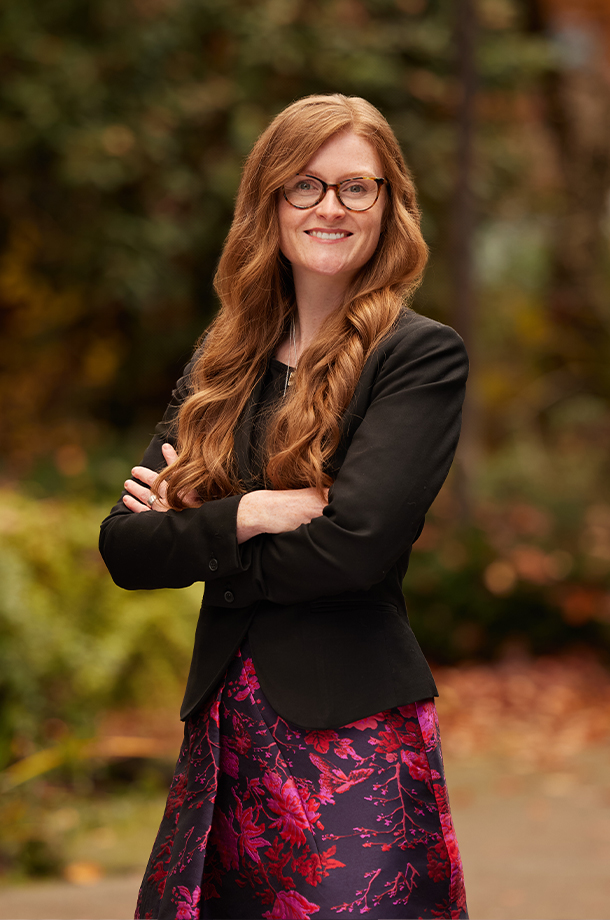
In a recent decision from the Supreme Court of British Columbia, Justice Matthews had an opportunity to consider the impact of the COVID-19 restrictions on a will-maker’s testamentary intentions.
Bishop Estate v. Sheardown, 2021 BCSC 1571, involved a case where a will-maker, Marilyn Bishop, cancelled her appointment to execute her Will as a result of the COVID-19 pandemic, and passed away without ever having signed it. The Court was required to consider whether the draft Will should be ordered fully effective, even though it did not comply with the statutory requirements for a valid Will.
Section 58 of WESA
With the coming into force of the Wills, Estates and Succession Act [WESA] in 2014, the courts in British Columbia gained the power to cure wills that do not comply with the formal requirements for making a will. This may be the case, for example, where a Will is not properly signed or witnessed. Under s. 58, the Court can order a such record, document, or writing to be fully effective. In order to grant relief under this section, however, the Court must be satisfied of two elements:
- the document must be authentic, and
- the document must represented the will-maker’s deliberate or fixed and final intentions regarding the disposal of her property on death.
Bishop Estate
Bishop Estate involved the unexecuted Will of Marilyn Bishop, a resident of Kamloops. Ms. Bishop was 76 years old at the time of her death. She was predeceased by her husband, who was the executor and beneficiary of her earlier Will (the “2014 Will”). Ms. Bishop did not have any children, but in 2016, her nephew and his wife moved to Kamloops and visited with her often. Ms. Bishop grew close to her nephew and niece-in-law in the years prior to her death.
Ms. Bishop suffered from a rare autoimmune disease called dermatomyositis, which required monthly treatments. In late 2019, Ms. Bishop moved into a care facility. After this incident, Ms. Bishop contacted the law firm who had prepared her 2014 Will, and gave a lawyer instructions to make a new Will for her.
Ms. Bishop’s Will
Ms. Bishop instructed the lawyer to make a Will naming her nephew and niece-in-law as her executors and primary beneficiaries, and removing a gift to Kelowna General Hospital (“KGH”), who had been the alternate beneficiary under her 2014 Will. Ms. Bishop explained that it had been her husband’s idea to name KGH in their previous wills. The lawyer prepared the Will for Ms. Bishop, who then reviewed it and made handwritten notes largely consisting of filling in blanks left for her, including her niece-in-law’s middle name. On March 3, 2020, Ms. Bishop delivered a note to the lawyer providing answers to his questions, instructing him to make the following changes:
- [niece-in-law’s full legal name]
- Specific gift to my great-niece:
[B.M.S.]– One Brooch – the letter “B” in Yukon gold nuggets
- No charities at this time.
The lawyer prepared a final draft of the Will, and then instructed his assistant to contact Ms. Bishop to ask whether she wanted to see the new draft or just review it when she came to sign.
On March 17, 2020, Ms. Bishop made an appointment to meet with her lawyer to sign her Will. It was set for March 20, 2020, but the day before, on March 19, Ms. Bishop cancelled her appointment. The evidence was that by that time, Ms. Bishop’s care home was only allowing residents to leave for medical appointments.
Although the lawyer offered to mail Ms. Bishop her Will for signing, and even though the Province created a framework for remote execution of Wills, Ms. Bishop died in the summer of 2020 without having signed her new Will.
2014 Will versus 2020 Unexecuted Will
After Ms. Bishop’s death, the alternate Executor of her 2014 Will applied for directions from the Court. He sought to know whether the unexecuted 2020 Will (the “Unexecuted Will”) represented Ms. Bishop’s testamentary intentions and so should be ordered effective under s. 58. Ms. Bishop’s nephew and niece-in-law said that the COVID-19 pandemic was the only reason why Ms. Bishop had not executed it. For its part, KGH said that the evidence did not demonstrate that Ms. Bishop’s intentions were fixed and final, and sought that her Estate be distributed to it under the 2014 Will.
Giving Effect to Ms. Bishop’s Wishes
Noting that the authenticity of the Unexecuted Will was not disputed, Justice Matthews considered whether it represented Ms. Bishop’s fixed and final intentions.
The judge noted that the Unexecuted Will did not comply with the statutory requirements because it was not signed by Ms. Bishop, and there were no witness attestations. However, the evidence indicated that the Unexecuted Will nonetheless represented Ms. Bishop’s fixed and final intentions. She had arranged for the Will to be drafted by the same law firm that had drafted her 2014 Will, having booked an appointment to discuss her affairs following the death of her husband, who had been her primary executor and beneficiary. Further, her nephew and his wife had moved to Kamloops and become a regular part of her life, and her health had declined. Ms. Bishop made the appointment for the purpose of discussing her plans for her estate, and gave specific instructions. She later reviewed the draft Will, and directly responded to the lawyer’s questions to finalize the Will. While she had noted “at this time” when saying she did not wish to make a gift to charity, this did not mean that her intentions were not fixed and final at the material time, and there was no evidence that those intentions changed. The terms and circumstances of the Unexecuted Will made sense.
The judge then considered KGH’s argument that Ms. Bishop’s failure to sign the Unexecuted Will in the four months before her death meant she had changed her mind. Justice Matthews rejected this submission. Although the lawyer had offered to mail her the Will, the judge noted that Ms. Bishop had interacted with the law firm in person, and at the time, official communications were addressing matters in short time frames, with the public being urged to comply with restrictions that were “not forever”, but were “for now”. Also, there was no evidence that Ms. Bishop was aware of the remote Will execution procedures that came into effect in May of 2020, that she had been advised to destroy her 2014 Will, or that anyone had suggested she could ask staff at the care home to act as witnesses for her Will. Ms. Bishop had been very concerned about COVID-19 as a result of her autoimmune disorder, only seeing her niece-in-law, being her designated visitor, when she needed to attend medical appointments. There was no evidence that Ms. Bishop had changed her mind about the Unexecuted Will, and there was a rational explanation for delay. “[B]ut for the exceptional circumstances of the pandemic, Ms. Bishop would have executed the will on March 20, 2020 as originally planned and was waiting for circumstances to change so that she could do so” (para. 60). In the result, pursuant to the Court’s curative power in s. 58 of WESA, Justice Matthews ordered the Unexecuted Will to be fully effective.
Pandemic Restrictions and Will-Makers Intentions
As noted by Justice Matthews in the opening paragraph of her decision, “In March 2020, the world ground to a halt as a result of the COVID-19 pandemic”. The pandemic impacted, and continues to impact, our lives in innumerable ways. Bishop Estate serves as one of the first reported cases to consider the consequences of a will-maker being unable to make a will as a result of pandemic restrictions. As the decision shows, however, a will-maker’s intentions need not be defeated by a failure to comply with the strict formalities required to make a valid Will, including where that failure arises as a result of the ongoing COVID-19 pandemic.
For assistance with your estates matter, please contact a representative of our Estates & Trusts Practice Group.



